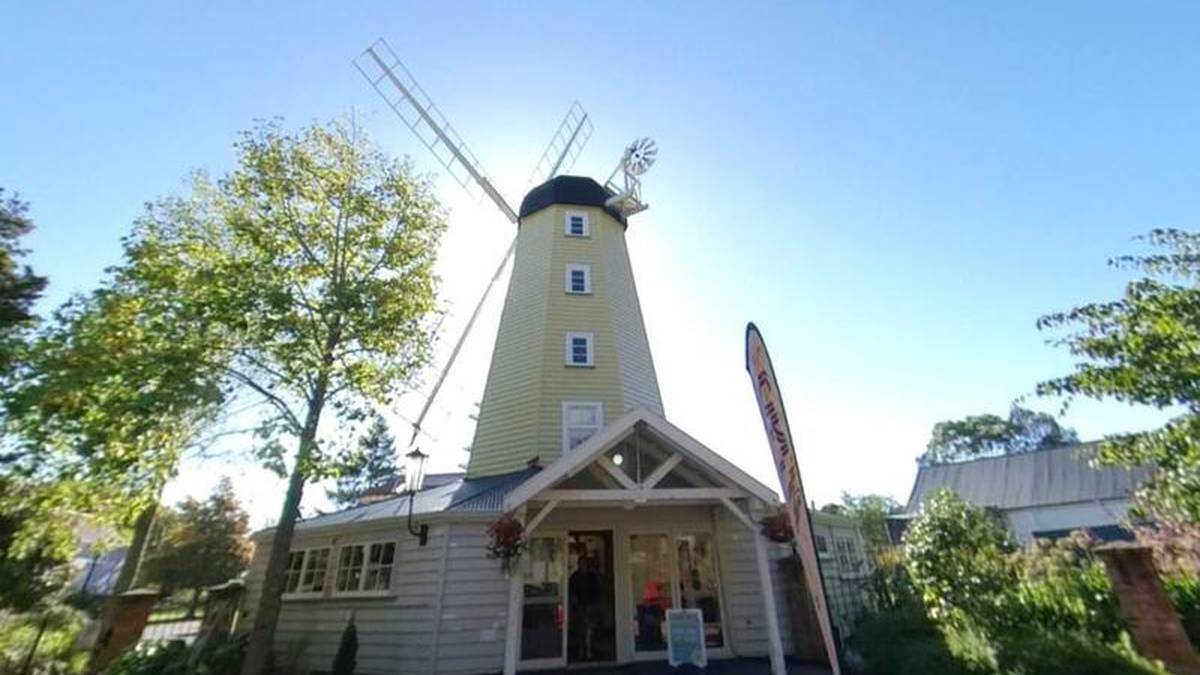The windmill is one of the featured heritage buildings in the park. Photo / Deborah LaHatte
Whakatū Marae has called on the Nelson City Council to prioritise renaming Founders Heritage Park, three years after a park strategy labelled the name “overtly colonial and offensive to iwi”.
But a management plan newly adopted by the council has put the project out until at least 2027.
In August, Whakatū Marae komiti chairwoman Jane du Feu (Te Atiawa) wrote to the council, urging it to “consider changing the name of the park to one that better acknowledges and respects the rich and cultural history of the region”.
“While it is appreciated the intention behind naming the park Founders Park, signifying the individuals who were instrumental in establishing Nelson, it is essential to recognise that this name fails to consider the presence of the iwi that inhabited the area long before the arrival of European settlers.”
Advertisement
The website for the council-owned park invites people to “explore displays of Nelson’s heritage, learn the stories of our local people and meet our working artisans”.
The marae’s letter came three years after a 10-year strategic plan for the park labelled reviewing the name a one- to two-year priority to achieve a goal of strengthening relationships with iwi.
/cloudfront-ap-southeast-2.images.arcpublishing.com/nzme/2KZ776QW2NE37AMRU7MN46UFPU.jpg)
Renaming the park will occur in years four to 10 of the council’s next long term plan, according to a recently adopted management plan.
While the park’s location next to the marae was a strength for iwi relationships, there was “limited visibility of tangata whenua stories”, the 2020 strategic plan said.
Advertisement
‘The name Founders can be seen as overtly colonial and offensive to iwi.’
Last month the council approved the Draft Arts, Heritage and Events Activity Management Plan 2024-2034. The plan will inform the development of the council’s long-term plan next year, which sets the budgets for the next 10 years.
That plan puts renaming the park as an activity to occur in years four to 10 of the plan.
The renaming would be followed by “development of a master plan for developing the park as a place for people of all cultures”, the document said.
When asked why renaming the park was from year four onwards in the latest management plan, council group manager community services Andrew White said any name change would be done “in conjunction with the marae and iwi and involve engagement with the wider community”.
“Given the park’s importance to Whakatū Nelson and our evolving understanding of how we view our shared heritage, this change will require more time for it to be done sensitively and thoroughly.
“Council will be continuing its ongoing discussions with Whakatū Marae in the short- and longer-term about a name change and other ways we can strengthen our relationship with the marae, iwi and Māori in Whakatū Nelson.”
/cloudfront-ap-southeast-2.images.arcpublishing.com/nzme/7KKSRKEGRNCVBGJL2OIMDT4TUU.jpg)
Du Feu said these processes would always take time, and she was glad it was on the council’s radar.
“It’s been entertained, and so that’s the positive. It’s also been acknowledged – the name is inappropriate.”
The committee wrote the letter to put the renaming “back on the table” – and they would make sure it stayed there, she said.
Advertisement
“It’s not going to go away for us.”
Across the motu, inequities and cultural imbalances were being recognised, and this was one example of that, she said.
“The name Founders says it all. Hang on a minute – you weren’t the founders of Nelson, there were people who were here before you.”
Many of the European settlers of Whakatū would not have survived without the help of local iwi, including wāhine Māori supporting settler mothers and babies to cope in the new environment, she said.
“Founders wouldn’t exist had they not supported those settlers when they came.”
There were many areas where Māori culture needed to recognised equitably, but the fact that Founders was next door to the marae meant that it “needs urgent attention”.
Advertisement
It was appropriate to recognise the role of settlers in the history of Whakatū Nelson, but there was “no acknowledgement whatsoever that there’s another part to this”, du Feu said.
Changing the name would be a first step in a journey to improving understanding, she said.
“How do you take people along on a journey to understand, and they have to be willing to actually come on that journey to understand, and it’s not our responsibility to actually do that for them. They’ve got to make a commitment to do it as well.”




 What’s On: Things to do in Rotorua, Tauranga and the Bay of Plenty region
What’s On: Things to do in Rotorua, Tauranga and the Bay of Plenty region